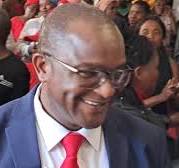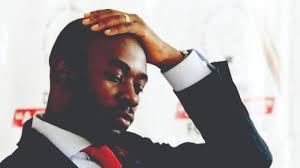Brenna Matendere
Harare–Nelson Chamisa’s leadership style through a strategic ambiguity model is mainly to blame for his political woes that eventually forced him to quit the movement, leading political analysts have said.
Chamisa announced through a statement on Thursday that he had quit the Citizen Coalition for Change (CCC) two years after founding it at the beginning of 2022 because, according to him, it had been hijacked by the ruling Zanu PF.
This followed a string of post-2023 harmonised elections recalls of CCC lawmakers and councillors initiated by a shadowy committee led by Sengezo Tshabangu, a hitherto largely known figure who imposed himself as the movement’s interim secretary general.

The Tshabangu-led committee comprises nine members who are all from Bulawayo, the second capital city.
While Chamisa was quick to blame infiltration and manipulation by Zanu PF using proxies like Tshabangu and State institutions that include the judiciary that ruled in favour of his foes, analysts have said the 45-year old former CCC president was ill-advised in adopting strategic ambiguity.
Ironically, the CCC adopted strategic ambiguity—a method used by governments and businesses to make it difficult for competitors to counteract them—so as to avoid infiltration by keeping Zanu PF and government spies guessing on its actions and strategies.
As part of its strategy, the CCC avoided setting up formal structures, did not have institutional bank accounts and resisted calls to adopt a constitution, a situation that made it impossible to hold its leadership accountable and provided an opportunity for anyone to claim a stake in the political entity.
Eldred Masunungure, a professor of politics, described the CCC strategic ambiguity as “disastrous”.
“That strategic ambiguity approach was a disaster that is at the root of his (Chamisa’s) demise as CCC leader. He should abandon it in-toto as he reflects on his next journey of establishing another political formation,” he told NewsHub.
Chamisa has not announced his next move, but there is speculation that he intends to lead a new political formation.
He founded the CCC after he was hounded out of the MDC-A, the main political party he led, by former colleagues in the opposition that included Douglas Mwonzora who also wrested control of the political outfit from him.

“From the charade surrounding the recalls of his MPs and councillors by the CCC’s pseudo secretary general, Sengezo Tshabangu, Nelson Chamisa was now haunted by his own party. Instead of exorcising the Tshabangu ghost, he chose to exit the party.
“In a large sense, Chamisa had lost control of the party which had become a pale shadow of itself, compared to its robust state at its formation in January 2022 and as reflected in the March by-elections of that year,” added Masunungure.
The CCC was formed ahead of the by-elections to avoid the likes of Mwonzora—who headed another political outfit, MDC-T—claiming legislators loyal to Chamisa as had happened in 2021.
The formation won most of the March 2022 by-elections, which had been offset by a wave of recalls instigated by Mwonzora’s MDC-T that insisted MDC-A was its entity.
The main opposition has repeatedly challenged the Tshabangu recalls through the courts that have, however, tended to rule in favour of the self-imposed interim secretary general, resulting in the depletion of CCC councillors and legislators.
Masunungure said the courts’ decisions effectively wrested control of the party from Chamisa.
“Thus, Chamisa’s ‘withdrawal’ from the party was really a fait accompli; in short, it was both necessary and inescapable,” said Masunungure.
The University of Zimbabwe political scientist added that Chamisa had a quarter of a century experience in opposition politics and must have acted more wisely than he did, especially following previous recalls and manipulation of the MDC-A by MDC-T.
“If he is a learning politician – which he should be – his first port of call as he thinks about ‘fresh things’ including crafting a new party, is to jettison any thinking that is informed by the amorphous ‘strategic ambiguity’. Its bitter fruits are there for everyone who has eyes to see and ears to hear,” said Masunungure.
Stephen Chan, a professor of world politics at the University of London’s School of Oriental and African Studies, also said strategic ambiguity had seriously weakened Chamisa and CCC.
“The CCC was so ambiguous in its internal shape that it was essentially porous. It was a very easy hit for anyone with half a strategic brain. So the enemies of Chamisa have now scored a victory. But Chamisa cannot keep moving from party to new party.
“He shouldn’t seek the reputation of moving on when the going gets tough, leaving his allies behind him. If he forms a new party, it must be from the start constitutionalised and all its functions transparent. No more ambiguity of any sort,” Chan told NewsHub.
Publisher and academic, Ibbo Mandaza, said lack of broad consultations affected Chamisa’s political career, adding that, going forward, the popular opposition leader and pastor must shake off the one-man band leadership style that saw him running the CCC like a cult leader.
“Chamisa needs to introspect in the first instance, before he throws another flag. More importantly, he must learn to understand that the opposition in Zimbabwe is bigger than one person and requires broad consultations and cooperation.

“Without that, it’s virtually the end of the road for him. He won’t be the first nor the last in the history of opposition politics in general,” he said.
Jonathan Moyo, a former Zanu PF cabinet minister who has lived in self-exile since the forced removal of the late Robert Mugabe by the current Emmerson Mnangagwa administration with the help of the military, used X to condemn the CCC strategic ambiguity.
“Anyone anywhere who at any time comes up with a political party with no structures and with no constitution, or who makes himself or herself the structure and constitution of the party is his or her own worst enemy…As a matter of fact, there is nothing as easily infiltratable as a structureless and constitutionless political party,” wrote Moyo.


Comments are closed.